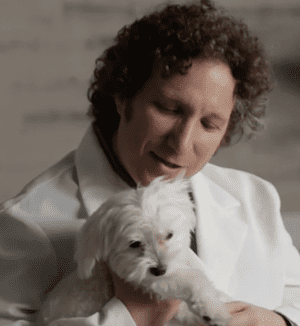*This article references breed dogs only. Please note, these rules apply for puppies born on the
street as well. Dharamsala Animal Rescue promotes adopting rescues.
If you’re thinking of taking home a puppy, you might be asking yourself, “When can puppies leave their mother?”
Here’s a look at when a pup can be separated from the litter without leading to behavioral problems. You’ll also learn the differences between a properly socialized puppy and one that has been taken from their canine family too soon.
Do Young Puppies Miss Their Mother Upon Separation?
Let’s get to the question that bothers a lot of people who want a puppy. They love the thought of bringing a puppy home, but they feel a twinge of guilt making the puppy leave their litter.
Yes, there will be some crying when you bring a puppy home. But your new pet won’t necessarily be doing this because they’re missing their mother and siblings. After acclimating to the new home, the pup should be just fine.1
Taking a puppy from the litter too soon is not only wrong, it can also be dangerous to the dog’s health and well-being.
When Can a Puppy Leave its Mother?
If you ask your veterinarian or breeder, they would probably say that a puppy should not be separated from their siblings until at least eight weeks after being born. And this is true whether you’re adopting a puppy for your family or for puppies who’ll go on to become service or guide dogs.
From the minute they are born and for the following eight weeks, puppies have to be with their mother. They count on mom for food and to help them learn socialization skills.
This is where the puppy starts to learn about the world and about proper behavioral norms.
Once you get the puppy home and begin crate training, you may hear some crying or even howling. Your young dog may also seem frightened at night and have a hard time getting to sleep.2
This isn’t necessarily because the puppy is missing their siblings and mother. It’s normal behavior, and it doesn’t usually indicate a behavioral problem. This is true whether you get a Golden Retriever puppy, a German Shepard pup, or a dog from any other breed.
Can Early Socialization Possibly Prevent Behavioral Problems in Pups?
Just like a child, puppies go through different stages of development. The time between three and five weeks after the pup is born is when they learn acceptable social behavior. They learn how to accept discipline from their mother. They also learn their place in the pack, along with their siblings.
If a puppy isn’t properly socialized, that could lead to big issues in their adult life. Adult dogs who are separated too soon may not tolerate other dogs, or may show aggression and other behavioral problems.3
According to one study, puppies that were taken from the litter 30-40 days after being born had more behavioral problems than those separated at the 60-day mark. These problems included:
- Food aggression
- Excessive attention seeking
- Destructive behavior
- Excessive barking
- Pups obtained from pet stores appeared to have more pronounced problems.4
No reputable breeder or rescue organization would ever allow puppies to be separated too early. If you want to find dog breeding professionals in your area you can trust, contact your local kennel club or Humane Society. You could also ask your vet.
Wondering About Puppy Care? Talk to Your Vet.
Thinking about bringing home a puppy?
~
Feature Photo Credit. Jesse Alk
Get our best articles straight to your inbox.
Subscribe to The DARling below:
About the author

Dr. Gary Richter, MS, DVM
Dr. Gary Richter loves animals, and is passionate about keeping them healthy and happy as long as possible. He has received more than 30 awards due to his expertise in the field, and The American Veterinary Medical Foundation recently named Dr. Richter “America’s Favorite Veterinarian.” Dr. Richter has been at the forefront of pet nutrition for two decades, and he is also the author of the bestselling “The Ultimate Pet Health Guide.”


